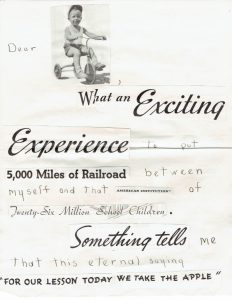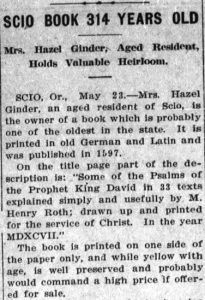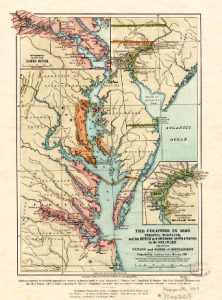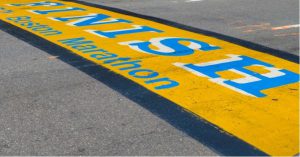
I grew up in a normal home with two parents, one older brother, various dogs, cats (house and barn varieties), and a one-time parakeet. Like most people with that background, I thought I knew my parents and their individual backgrounds well, especially because my mother was careful to instill in me an appreciation of both lines of the family history.
In the early-mid 1930s, my mother was teaching and boarding with the principal of her school where My Father The Milkman delivered the semi-weekly bottles. It was a bottle of milk that began my parents’ relationship and a 1938 marriage lasting for more than 57 years, until my father’s death in 1995. Continue reading A scrapbook love letter








